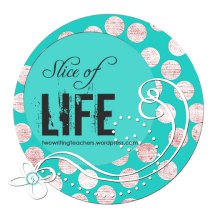Our fifth graders are in the midst of an informational reading/writing unit focused on inventions and inventors. While the students read mostly nonfiction during this unit, we also share several poems from Joyce Sidman’s remarkable book, Eureka! Poems about Inventors (Millbrook Press, 2002). In this volume, Sidman, winner of the 2013 NCTE Award for Excellence in Poetry for Children, celebrates in verse the invention of paper, hot air balloons, velcro, and more.
“Food of the Gods” describes the history of chocolate, from Quetzalcoatal dropping “ripe yellow pods of cacao” to Francois-Louis Cailler, who, in 1819,
“…seized upon them,
mixed and ground and tempered,
and by some clean and wholesome magic,
made of them a food–
a wafer of heaven,
a smooth slab of heart’s delight.”
For more about Eureka! as well as a Reader’s Guide and links to information about inventors, visit Joyce’s website.
In the past, the fifth grade teachers and I have talked about having the kids write their own inventor/invention poems, but we’ve never managed to find the time. I had my own eureka moment when I read Dana Murphy’s post about erasure poetry over at Two Writing Teachers last week. Suddenly, I knew this was the way to have our students craft poems about the inventors and inventions they’re studying. This technique is also a great way for students to practice zeroing in on important details and main ideas.
Here is my attempt at erasure poetry to use as a model with students. I chose Jacqueline Briggs Martin’s Snowflake Bentley (Houghton Mifflin, 1998), one of my all-time favorite books to share with students, as my subject. Mary Azarian’s stunning woodcut illustrations for the book won the Caldecott Medal. Although Wilson Bentley wasn’t an inventor like Gutenberg or Elijah McCoy, he did develop the process to photograph snowflakes and became world-famous for his miraculous pictures.
I worked in my notebook, jotting down lines that seemed meaningful as I read the book. As I reread, I thought about the importance of particular events and made decisions about including them in my poem. This kind of thinking can be challenging for students, and writing erasure poems will be an engaging way from them to practice these important skills.
The Snowflake Man
~Wilson Bentley~
born February 9, 1865
Jericho, Vermont
A boy who loved snow,
snow as beautiful as butterflies,
studied the icy crystals
through an old microscope.
Saw intricate patterns,
no two the same.
He wanted to find a way
to save snowflakes,
and tried drawing snow crystals,
but they always melted.
At sixteen,
he read about a camera with a microscope.
“I could photograph snowflakes,” he thought.
At seventeen,
his parents spent their savings
on that camera.
Mistake by mistake,
He would not quit.
Finally, in the second winter,
he figured out
how to photograph snowflakes.
Neighbors laughed when
he waited hours
to find just the right crystal.
Willie said the photographs
would be his gift to the world.
He wrote and gave speeches,
became famous,
and published a book.
A book of his best photographs,
of his treasures in snow.
![By Smithsonian Institution from United States (Snowflake Study Uploaded by PDTillman) [see page for license], via Wikimedia Commons](https://readingtothecore.files.wordpress.com/2014/01/wilson_a-_bentley_snowflake_1890.jpg?w=300&h=300)







![World of Ptolemy as shown By Johannes de Armsshein, Ulm, 1482 [Public domain], via Wikimedia Commons](https://readingtothecore.files.wordpress.com/2014/01/800px-world_of_ptolemy_as_shown_by_johannes_de_armsshein_-_ulm_1482.png?w=300&h=218)
![By Xander [CC-BY-2.0 (http://creativecommons.org/licenses/by/2.0)], via Wikimedia Commons](https://readingtothecore.files.wordpress.com/2014/01/800px-northern_lights_at_yellowknife.jpg?w=300&h=199)





